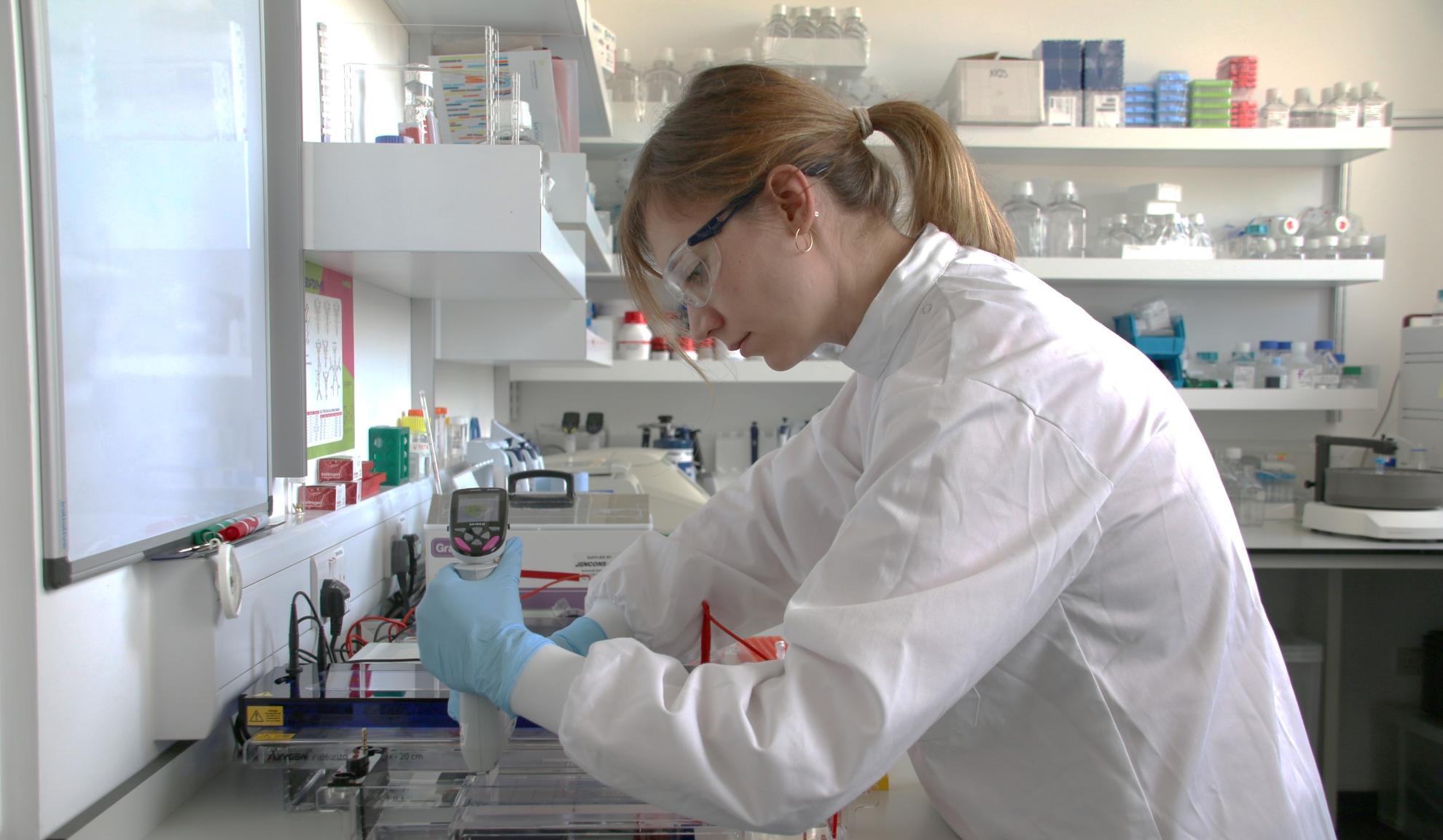11 February 2022 marks the 7th International Day of Women and Girls in Science. To highlight the important contribution our female scientists have made both to the Institute and to our global research in protecting animal and human health, we have been speaking to them about their inspirations and what advice they would give their younger selves, or others thinking about a career in science.
Read what some of our female scientists said:
Why do you love being a scientist?
“Being a scientist is working in an environment where every day is different. I love having a job where I can spend practical time working in the lab split with being in the office to analyse and write up results. It can be so rewarding when experiments work, and discoveries are made.” - Sarah Woodyear, Research Assistant
“Science is creative. We often think of the sciences as cold and rigorous and the arts the outlet for creative expression, but in research merging skills and bringing disparate concepts together can unlock an unseen avenue. You can both lead and be led by the pursuit.”- Philippa Hollinghurst, PhD Student
“My area of research is looking at whether immunity to existing viruses, through vaccines or infection, can also protect against emerging viruses. My favourite thing about being a scientist is the research that I'm doing has a positive impact on society. I've especially enjoyed being actively involved in the COVID-19 research that's taken place over the past two years.” - Nazia Thakur, PhD Student
Which women in science have inspired you?
“When I think of historical figures in the field of biology, I am always encouraged by Barbara McClintock and her discovery of transposons or ‘jumping genes’. McClintock’s tenacity and passion for her subject won her a Nobel prize in 1983, 30 years after she had initially described the concept.
"In the wake of the pandemic, I have found the work of the team led by Professor Dame Sarah Gilbert in the development of the Oxford/AstraZeneca vaccine to be humbling. It reminds me of the value of scientific research in serving humans worldwide and exemplifies the power of collaboration in taking a concept from an idea to a life-saving tool.”- Philippa Hollinghurst, PhD student
What advice would give to your younger self?
“That anything is possible, don’t let anyone tell you that you can’t. You don’t have to be the smartest, just have the interest and follow the route it takes you. Opportunities that you never considered will present themselves!”- Dr Jade Passey, Science Communications Officer
“You don’t have to be just one thing and things you do imperfectly can have value that you won’t realise at the time. A different perspective or way of thinking can be your biggest asset.” - Philippa Hollinghurst, PhD Student
Pirbright also aims to inspire the next generation of women in science through our many public engagement events. For example, later this month we look forward to taking part in the Festival of Tomorrow – there is no better way to inspire young people than allowing them to speak to scientists at events.
Why do you want to encourage more girls in STEM (science, technology, engineering, maths)?
“Women and girls in STEM can lack confidence. Trust in your abilities and grab every opportunity, even if it scares you rigid. Preparation will give you confidence. Say yes, then do the preparation!” - Professor Pippa Hawes, Head of Bioimaging
“I want to encourage more girls in STEM so that there are more role models for young women and girls in these subjects. It’s really important to be able to see people like you doing a subject you like and can be off-putting when there is only one type of person doing it. Diversity is also essential for good research so you can have a range of voices and ideas to drive research forward and make projects more interesting and worthwhile.”- Dr Phoebe Stevenson-Leggett, Postdoctoral Research Scientist and STEM Ambassador
Our commitment to supporting women in STEM is demonstrated by Pirbright’s Athena SWAN bronze award. The award is assessed using several principles that showcase the Institute’s commitment to supporting gender equality in the workplace.
“I have always wanted to do a PhD in Zoonotic viruses – it has been an aspiration ever since completing my masters and working as a veterinarian in developing countries. I had first-hand exposure to the impact of the disease like avian influenza and deeply feel the need to bridge the gap between clinician and research. With two young children, I knew doing a PhD would be a challenge, but The Pirbright Institute has been incredibly supportive in helping me achieve my goals and the family-friendly policies enable me to juggle raising two young children while attaining my PhD.” - Mehnaz Qureshi, PhD student
From those just starting their scientific career, through to group leaders and directors we are proud of the ambitions, passion, and contribution made by all women in science at The Pirbright Institute.
